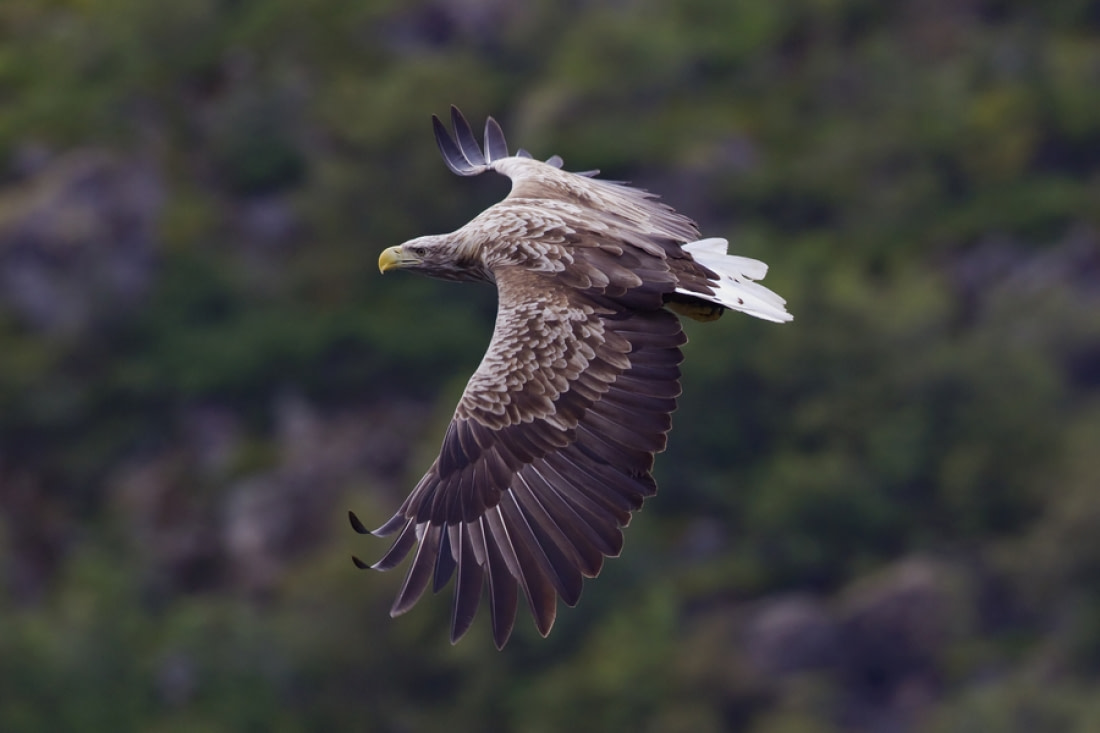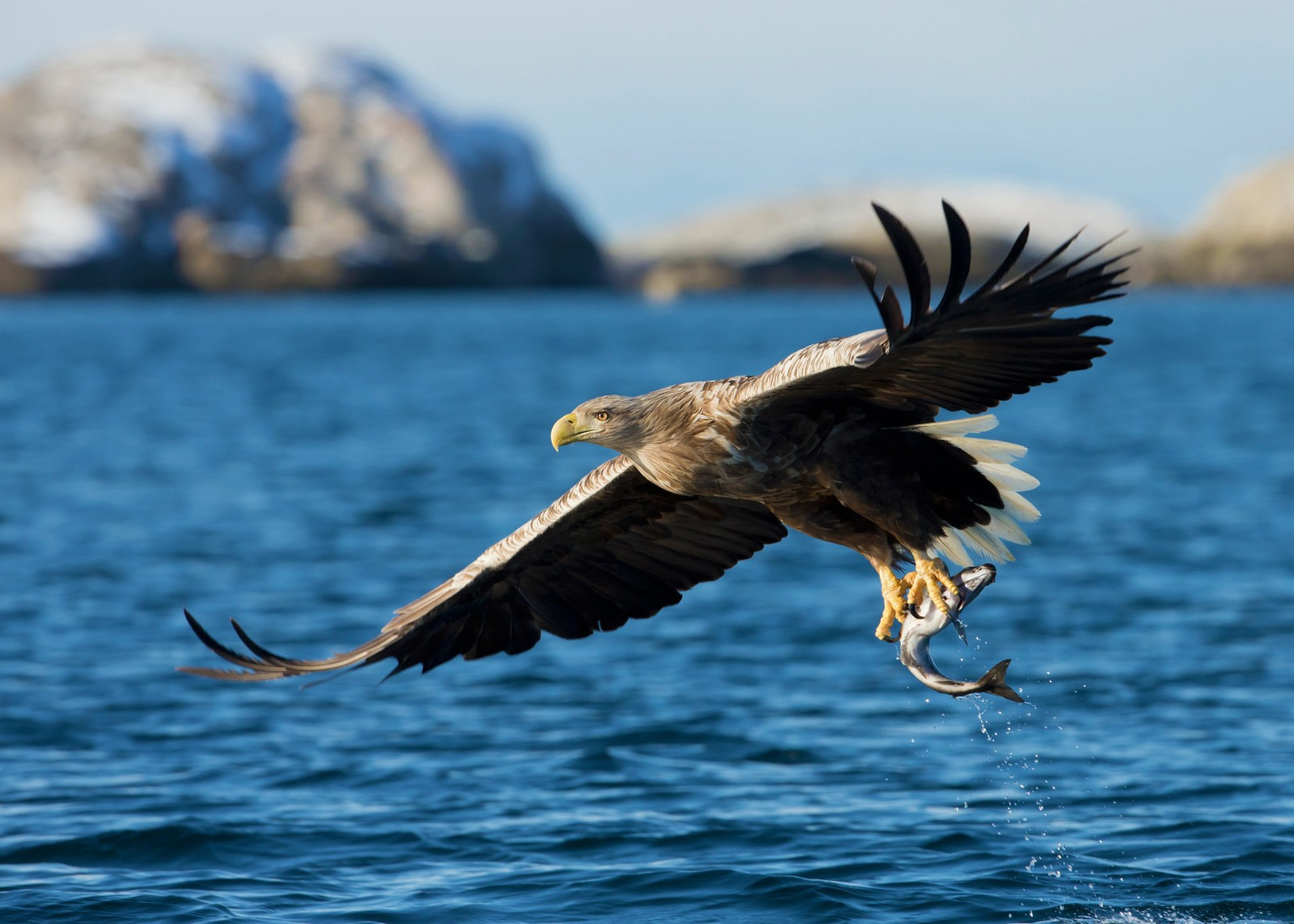Name: White-tailed Eagle, Sea Eagle, Erne, White-tailed Sea Eagle (Haliaeetus albicilla)
Length: 65 to 95 cm
Weight: 3 to 7 kg
Location: Northern Europe and Asia, winter in Mid-East and Eastern Asia
Conservation status: Least Concern
Diet: Fish, birds, small mammals, carrion
Appearance: Greyish-brown with white highlights and a white tail
How do White-tailed Eagles feed?
The diet of a White-tailed Eagle varies by location and season. They are opportunistic feeders, often stealing food from other birds and otters. They are skilled fishers, catching fish near the water's surface, and will scavenge garbage or carrion. They may attack colonies of smaller birds, causing them to abandon their young and eggs, forcing some species to relocate.
How fast do White-tailed Eagles fly?
White-tailed Eagles can reach speeds up to 70 km per hour.

By Yathin S Krishnappa (Own work) [CC BY-SA 3.0], via Wikimedia Commons
What are White-tailed Eagle mating rituals like?
White-tailed Eagles reach sexual maturity around 4 years old. Courtship includes aerial displays where the pair locks talons and spins toward the ground, breaking off at the last moment. They mate for life, building nests in trees or on cliffs, often returning to the same nest annually. The female lays 1 to 3 eggs in March or April, with both parents incubating for about 40 days. Chicks can feed themselves at 5 weeks and fledge at around 11 weeks.
How long do White-tailed Eagles live?
White-tailed Eagles live about 20 to 25 years on average.
How many White-tailed Eagles are there today?
There are over 12,000 White-tailed Eagles in Europe.
Do White-tailed Eagles have any natural predators?
White-tailed Eagles have no natural predators, making them an Apex Predator.
7 Wonderful White-tailed Eagle Facts
- White-tailed Eagles are closely related to Bald Eagles and occupy a similar ecological niche in Eurasia.
- They have the largest wingspan of any Eagle on average.
- The largest population in Europe is along Norway's coast.
- Their territory can extend up to 70 km, usually near water bodies.
- They appear in Germany's coat-of-arms and are the national bird.
- They are the largest Eagles in Europe.
- European White-tailed Eagles are mostly sedentary, while those in Russia and northern Asia are migratory.





